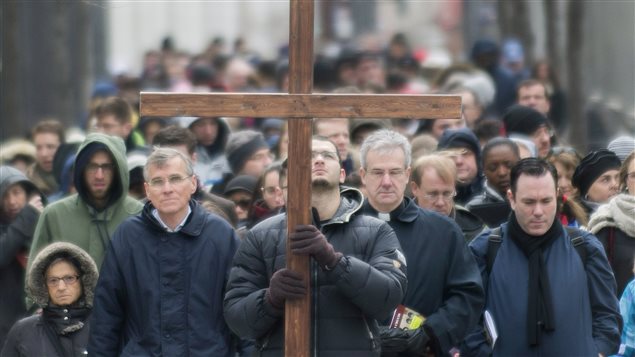Canada, celebrated as a mosaic of cultures, stands as a beacon of diversity and religious freedom. Rooted in the Canadian Charter of Rights and Freedoms, the nation guarantees every individual the right to practice their faith without fear of discrimination or persecution. This commitment to inclusivity has fostered a rich tapestry of religious traditions, making Canada a melting pot of beliefs, cultures, and languages. In this comprehensive exploration, we delve into the vibrant landscape of religious institutions across Canada, highlighting the diverse array of places of worship and the pivotal role they play in fostering community cohesion and spiritual enrichment.
Diversity and Religious Freedom in Canada
At the heart of Canada’s ethos lies a profound respect for diversity and religious freedom. Enshrined in the Canadian Charter of Rights and Freedoms is the fundamental principle of freedom of religion, conscience, and expression, ensuring that every individual has the right to worship according to their beliefs. Unlike some countries with official state religions, Canada embraces religious pluralism, recognizing and celebrating the multitude of faiths practiced within its borders. According to the 2020 General Social Survey, a staggering 92.0% of Canadians aged 15 and older affirm that ethnic or cultural diversity is a cherished Canadian value, underscoring the nation’s commitment to inclusivity.
To accurately capture the rich tapestry of Canada’s population, Statistics Canada has diligently measured ethnocultural and religious diversity since 1871. The 2021 Census stands as a testament to this commitment, providing comprehensive data on over 450 ethnic and cultural origins, 200 places of birth, 100 religions, and 450 languages. This meticulous documentation reflects Canada’s dedication to recognizing and preserving its diverse heritage for future generations.
Religious Institutions in Canada
In every corner of Canada, religious institutions serve as pillars of strength and sources of spiritual nourishment for their communities. From mosques to temples, churches to synagogues, these places of worship embody the vibrant tapestry of faith that characterizes Canadian society.
- Mosques and Islamic Centers
- Organizations like the Muslim Association of Canada (MAC) and the London Muslim Mosque (LMM) provide essential religious and educational services to Canada’s Muslim community. Through Islamic classes, lectures, youth programs, and interfaith activities, these centers foster a sense of community and spiritual growth. The London Muslim Mosque, one of the first mosques built in Canada, serves as a vital center for the Muslim community in London, Canada, and its surrounding areas. Source: London Muslim Mosque
- Hindu Temples
- Hindu temples, such as the BAPS Shri Swaminarayan Mandir in Toronto and the Hindu-Mandir in Montreal, serve as spiritual sanctuaries for Canada’s Hindu population. These temples offer a space for worship, cultural events, and educational programs that promote Hindu values and traditions. The BAPS Shri Swaminarayan Mandir in Toronto is Canada’s first hand-carved stone and marble Hindu temple built according to ancient Indian principles. Source: BAPS Shri Swaminarayan Mandir
- Christian Churches
- From Catholic cathedrals to non-denominational churches, Christian institutions are ubiquitous in Canada. Grace Fellowship Church, Hillsong Church, and St. Patrick’s Parish are just a few examples of churches that play vital roles in fostering Christian values, community outreach, and spiritual growth. Grace Fellowship Church, a non-denominational Christian church located in Toronto, Ontario, strives to create an environment where people can come together to worship, connect, and grow in their faith. Source: Grace Fellowship Church
- Catholic Churches
- Catholicism holds a significant presence in Canada, with churches like the Basilique-cathédrale Notre-Dame de Québec and St. Patrick’s Parish serving as focal points for Catholic worship and community engagement. These churches uphold a tradition of social justice and outreach, advocating for the marginalized and vulnerable in society. St. Patrick’s Parish in Toronto, one of the oldest parishes in the city, offers a range of services and programs, including daily mass, confession, and prayer groups. Source: St. Patrick’s Parish
- Buddhist Temples
- Buddhist temples, such as the Buddhist Prajna Temple in Richmond and the Karma Sonam Dargye Ling Temple in Toronto, offer spaces for meditation, reflection, and spiritual guidance. These temples preserve the teachings of Buddhism and promote peace, compassion, and mindfulness within their communities. The Karma Sonam Dargye Ling Temple in Toronto offers a variety of services and programs, including daily meditation sessions, teachings on Buddhist philosophy and practice, and special events such as the annual Tibetan New Year celebration. Source: Karma Sonam Dargye Ling Temple
- Jewish Synagogues
- Synagogues like Congregation Shaar Hashomayim and Congregation B’nai Tikvah in Montreal and the Bagg Street Shul in Montreal serve as vibrant hubs for Canada’s Jewish community. These synagogues foster a sense of belonging and identity, preserving Jewish heritage and tradition through worship, education, and cultural events. Congregation Shaar Hashomayim, one of the oldest and most prominent synagogues in Canada, is located in Westmount, a wealthy suburb of Montreal. Source: Congregation Shaar Hashomayim
Conclusion
In Canada, the tapestry of religious diversity is woven with threads of inclusivity, tolerance, and mutual respect. From mosques to synagogues, temples to churches, each place of worship stands as a testament to the nation’s commitment to embracing its multicultural heritage. As Canadians, we celebrate the myriad faiths that enrich our society, recognizing that unity in diversity is not only a source of strength but also a testament to the values that define us as a nation.


